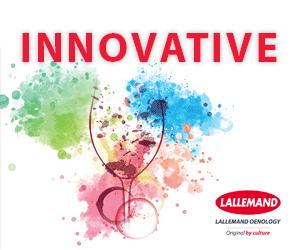
Nepotism is holding back the Australian wine industry, according to this anonymous letter received by WBM’s newsletter The Week That Was.
The Australian wine industry, once celebrated for its innovation and quality, is facing significant challenges that extend beyond market fluctuations and environmental factors.
A pervasive issue that has long plagued the industry, but is rarely discussed openly, is the prevalence of nepotism, particularly within the wine show system.
This entrenched practice is having far-reaching consequences, stifling innovation and demoralising many current members of the industry.
The roots of nepotism in Australian wine
The Australian wine industry has a rich history dating back to the late 18th century. As the industry grew, so did the influence of certain families and established players.
Over time, these connections solidified into networks that have come to dominate key aspects of the industry, including the once prestigious Wine Show System.
The Wine Show System, designed to recognise and promote excellence in winemaking, has inadvertently become a breeding ground for nepotism. Many of the judges and organizers have deep familial or corporate ties within the industry, creating an environment where personal relationships often outweigh merit.
Impact on innovation
One of the most significant consequences of this nepotistic culture is its stifling effect on innovation. New and independent winemakers, regardless of their talent or vision, often find themselves shut out of important networks and opportunities. This exclusion has several detrimental effects:
Limited exposure for new ideas: Innovative winemaking techniques or unique grape varieties may be overlooked if they come from outside the established circles. This limits the industry’s ability to adapt and evolve in response to changing consumer preferences and environmental challenges.
Risk-averse decision making: Those in positions of influence, often there due to family connections or being part of the rusted-on groupthink brigade may be less inclined to take risks or support unconventional approaches. This creates a conservative atmosphere that discourages experimentation and bold new directions in winemaking.
Reduced diversity: As the same cliques and networks maintain their grip on key positions, the diversity of perspectives and experiences within the industry narrows. This homogeneity can lead to a lack of fresh ideas and approaches.
Demoralisation of industry members
The pervasive nature of nepotism within the Australian wine industry is having a profound impact on the morale of many current members:
Frustration among talented outsiders: Skilled winemakers and industry professionals without family or corporate connections often find their career progression stymied. This leads to frustration and, in some cases, talented individuals leaving the industry altogether.
Erosion of meritocracy: When success is perceived to be more about who you know than what you know, it creates a demoralising atmosphere for those who have invested time and effort in developing their skills and knowledge.
Loss of credibility: As awareness of nepotistic practices grows, it erodes confidence in the industry’s institutions, including the Wine Show System. This can damage the reputation of Australian wine both domestically and internationally.
The wine show system: a case study in nepotism
The wine show system, intended to be a beacon of excellence and impartiality, has become emblematic of the nepotism problem. Several factors contribute to this:
Judging panels: Many wine show judging panels feature multiple members from the same close-knit networks. This creates an environment where personal relationships can influence decisions, even if unintentionally.
Award patterns: Analysis of wine show results over time reveals patterns where certain producers consistently receive accolades, raising questions about the objectivity of the judging process.
Limited rotation: There is often a lack of meaningful rotation in key positions within the wine show system, allowing entrenched interests to maintain their influence over extended periods.
Consequences for the industry
The entrenchment of nepotism within the Australian wine industry, particularly in the Wine Show System, has far-reaching consequences:
Reduced global competitiveness: As other wine-producing regions embrace innovation and diversity, Australia risks falling behind due to its rigid, nepotistic structures.
Loss of talent: Frustrated by limited opportunities, many talented winemakers and industry professionals are leaving for other wine regions or abandoning the industry entirely.
Stagnation: The lack of fresh perspectives and ideas can lead to stagnation in winemaking techniques, marketing approaches, and industry practices.
Potential solutions
Addressing the issue of nepotism in the Australian wine industry will require concerted effort and structural changes:
Transparent selection processes: Implementing clear, merit-based selection criteria for key positions in industry bodies and wine shows.
Diversity initiatives: Actively promoting diversity in leadership roles and judging panels to bring in fresh perspectives.
Mentorship programs: Establishing mentorship programs that connect established industry figures with up-and-coming talent outside of family networks.
Regular audits: Conducting regular, independent audits of wine show results and industry appointments to identify and address potential bias.
Conclusion
The Australian wine industry stands at a crossroads.
While it has a proud history and continues to produce world-class wines, the pervasive culture of nepotism threatens its future vitality and relevance.
By acknowledging and addressing this issue, particularly within influential structures like the wine show system, the industry can unlock new potential for innovation and growth.
Tackling nepotism will not be easy, as it requires challenging long-established networks and practices.
However, the benefits of creating a more open, meritocratic industry are clear.
A revitalised Australian wine sector, driven by talent and innovation rather than family or corporate connections, would be better positioned to face the challenges of a competitive global market and changing consumer preferences.
The time has come for honest, open dialogue about nepotism within the Australian wine industry.
Only by confronting this issue head-on can the industry hope to reinvigorate itself, inspire its members and secure its position as a leader in the global wine landscape.
The future of Australian wine depends on its ability to embrace change, foster new talent, and create an environment where innovation can truly flourish.
• What do you think of this? Email info@madiganmedia.com.au.









Recent Comments